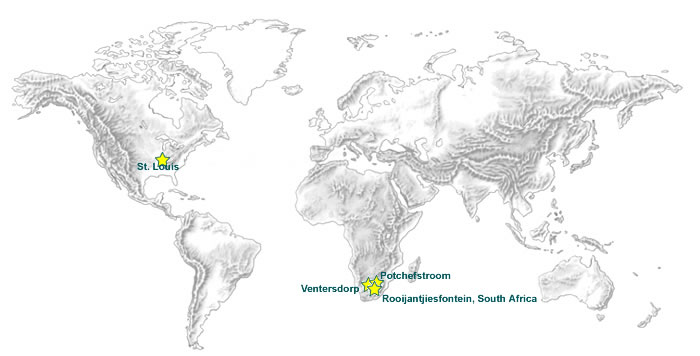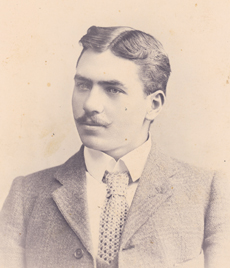August Carl Schulenburg (1879-1964)
August Carl Schulenburg was born in 1879 in North West Province (former Transvaal), South Africa. His father was a German-born medical missionary. Schulenburg was educated in Afrikaans-speaking schools and came to think of himself as an Afrikaner, or “Boer.” When the conflict known as the Anglo-Boer War broke out in 1899, Schulenburg enlisted and fought until his unit was captured in 1901. He and others were sent as prisoners of war across the Atlantic to a camp on a small island in the harbor of Bermuda. Released when the war ended in 1902, he decided to take advantage of his proximity to North America by visiting relatives, also German immigrants, who had settled in various states of the U.S. Midwest. While visiting an uncle living near Boonville, Missouri he was admitted to study at Washington University Medical Department in St. Louis.
Schulenburg enrolled in January 1903, one semester late for his class, but he was able to catch up in his course work by the summer of the same year. Events of his life as a medical student and intern over the ensuing four years are documented in a diary, correspondence, photographs, and memoirs. The Schulenburg collection together with other records in the archives at the Becker Library renders an unusually detailed picture of medical education in his time. Given that his training took place before the much-heralded changes to the faculty governance and curriculum following the Flexner Report in 1910, this evidence supports a view that fundamental reforms took place gradually. Schulenburg’s experiences in the classrooms and laboratories of the Medical Department and affiliated hospitals were comparable to those afforded by the best universities elsewhere in the U.S. at the turn of the twentieth century.
A significant sidelight to the story of Schulenburg’s medical studies is the brief description in his collection of attendance at the Louisiana Purchase Exposition, better known as the St. Louis World’s Fair of 1904. To his great surprise and pleasure, the fair featured reenactment of battles of the Boer War by a traveling troupe of South Africans, including veterans of his former commando unit.
Schulenburg graduated from the Medical Department in May 1906. He was an intern in 1906-1907 at St. Louis Mullanphy Hospital, a predecessor of today’s DePaul Hospital of north St. Louis County. Toward the end of this year, he considered an offer to practice in the St. Louis area, but was prevailed upon by his family to return home to South Africa in late 1907. Unfortunately for him, the British colonial government did not honor his American diploma. In order to practice as a licensed physician, Schulenburg was obligated to undergo further training and examinations at a British institution. For this he traveled to London and enrolled at Guy’s Hospital Medical College, finishing in May 1909.
Schulenburg spent most of his career as a general practitioner in Ventersdorp and Potchefstroom, cities of the former Transvaal. In the Afrikaner medical community he was particularly well-known, serving on the council of the national medical society and the council of Potchefstroom University (now North-West University). He died in 1964.

Related Resources:
- A South African Medical Student in St. Louis at the Turn of the Twentieth Century
- Images of August Schulenburg
Back to Biographies

